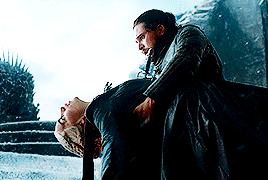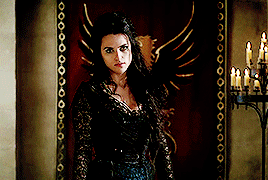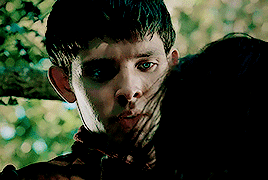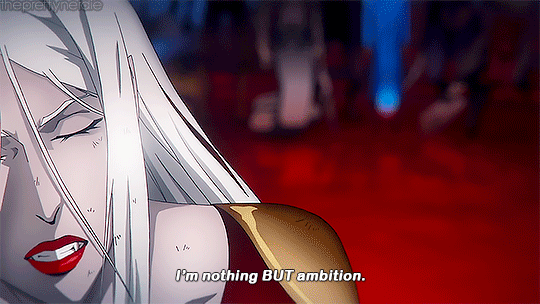#i love azula so fucking much… she’s an abuse victim and she’s also inflicted pain and suffering upon zuko and others bc of that.
Explore tagged Tumblr posts
Text
i see a terrible azula take? instant block. i’m cleansing ✨
#if i see one one more of u guys say that omg azula did nothing wrong uwu here’s why zuko and iroh and ursa etc. are#all actually irredeemable and azula has never done a single thing wrong in her life#i will LOSE IT#azula is a victim and she is a villain. it’s what makes her story so compelling and tragic#she’s a villain! she hurt people and tried to kill her own family members with zero remorse lol like what the fuck are you talking abt#i love azula so fucking much… she’s an abuse victim and she’s also inflicted pain and suffering upon zuko and others bc of that.#it’s a fucking tragedy. it’s an explanation for her actions but it doesn’t excuse it.#also this NOT anti azula. this is frustration at the fandom.#hattie talks#ch: azula#media: original
12 notes
·
View notes
Text
You know what I am really fucking tired of seeing in popular media?
The "evil, hysterical woman in power" trope. The clichè that potrays women who are in a position of power as overzealous, unhinged, power hungry maniacs who are a ticking time bomb waiting to explode.
Female leaders are shown as less resonable and down to earth as their male counterparts, and are often villainized by either the fandom or the narrative of the story itself. They are doomed to fail because of their womanliness and need to be taken down before they enact their evil plans, preferably by a man, or a woman who performs the 'right' kind of femininity.
This trope relies on the sexist misconception that women are more fragile than men, more emotionally unstable and unpredictable.
"Women aren't cut out to be leaders, they should be nurturing and supportive and tend to their families. Having higher aspirations is against their nature and will eventually break them and drive them crazy."
That type of bullshit that was designed to keep women out of leadership positions and keep oppressing us. To keep us quiet and submissive.
Here are a few examples to further explain this stereotype:

Daenerys Targaryen is one of the most well known characters to fall victim to this trope. She is an abuse and rape victim, seeking to change the current social and political systems of the world because she knows how many people suffer under its injustice. ("Crush the wheel.")
For all her compassion and charity she has shown over the series, the writers decided that it would be reasonable for her to go crazy at the end of the show and, despite promising she wouldn't inflict more damage than necessary, kill thousands of innocent people whose government had already surrendered to her.
And guess who had to kill her in the end? Yup, another man. Her love interest, who was "forced" to betray her.

Next, we have:

Morgana Pendragon, from "Merlin". To remind you, she is an abuse victim who had to endure her father's controlling behavior and bigoted attitude towards people with magic abilities which, suprise suprise, she turned out to have. She had to watch as her father murdered and oppressed people just like herself, and when she challenged that behavior, he would come down hard with punishment. (Going so far as to actually throwing her in the dungeons for a couple days.)
Eventually, she rebelled against the corrupt system and had her genocidal father killed. She led a rebellion against Camelot after Uther's son (Arthur) continued to oppress magicians under his reign, and sought to create a better future for herself and her people.
So far so good, right? Well, no. The problem here is that she is the antagonist of the story. She is portrayed as being in the wrong for not quietly taking the injustice and watching it happen.
Halfway through the show, she becomes obsessed with power and status and desperately chases after the throne of Camelot. She is extremly vindictive, manipulative and cruel to others to archieve her goals. She is a "hysterical woman" who is out of control, emotionally unstable, challenges the patriarchy, and therefore needs to be defeated.
Her death was portrayed as tragic, yet absolutely necessary.

(Of course it had to be a man who killed her.)

Azula is the epitome of this horrid, misogynistic trope. She is a fierce, ambitious leader and highly skilled fire bender, respected and feared among her people. She is highly driven and succeeds at almost everything she sets her mind to.
Ever since she came into this world, she was better at everything than Zuko. She was a better fighter than him, a better bender, better strategist, better child. And that is precisely the reason why she had to lose in the end.
Despite coming from the exact same circumstances as Zuko, the story and the fandom at large see Azula as way less redemable and likable than him. Even though she is an abuse victim whose own mother hated her and is a literal child soldier, she doesn't get any sympathy from the protagonists of the story. The otherwise so understanding and wise Iroh even calls her "crazy", (which is, if you've done some basic research into misogynistic expressions, really fucking problematic.) and tells Zuko that there is no saving her. Why? He doesn't tell, but it's obvious that the writers made him say this because of their own internalized sexist beliefs. She isn't offered a way out of her toxic environment like Zuko was. She didn't get the support from Iroh because he had already given up on her.
To top it off, she has a nervous breakdown near the end and loses her remaining sanity. Because, you know, "She's craaaazy!! And SO unstable!! Typical woman." (Not to mention how this further stigmatizes mental illness and portrays it as something only evil people get.)
She was supposed to become the next fire lord, a position that carries utmost power and influence. Of course, such authority could not be given to a woman. That's why Zuko, a man, gets to be the next fire lord, and we are left assuming Azula will be spending the rest of her days in prison.
The writers assume the audience detests Azula and wants her to suffer. She doesn't deserve a happy ending, or the love and support that Zuko got.
Why? Because she poses a threat to the status quo, the patriarchy. She challenged the belief that men had to be the best and most efficient at everything they do, that women could indeed be better leaders and be happy with having a career and not be nurturing, motherly figures to the men in their lives. And for that transgression, for breaking gender stereotypes, Azula was punished.
(It's also why Katara, someone who performs the "right" kind of femininity by being nurturing, motherly, supportive, healing, doting, and is the care taker of the group, ends up taking Azula, the evil and perverted form of femininity, down. I believe @batboyblog has made a similar post about this.)

This is Carmilla from the popular Netflix show "Castlevania", and if you've payed attention to my previous points, it should be pretty obvious what her character represents and how her story ends.
Note that she is also an abuse and rape survivor who is represented as evil and cruel for being angry at what was done to her.
To top it off, she is also an example of the man hating woman stereotype, whose anger at the misogyny and sexism of the world is portrayed as an "overreaction" and as "too much".

At the end of the story, she had to be taken down by another man (Isaac) so that the status quo could be preserved, and the reign of a crazy bitch like her could be stopped. Horay, the day is saved from yet another unstable, selfish woman who would have brought suffering and pain over her country if allowed to rule. Hysterical women with their demand for equality.
Conclusion:
In all these examples, we can see female abuse victims thriving for power and status, for respect, being represented as something negative and something to avoid. Trying to fundamentally change a system that is rigged against women/female representing people is a fruitless endevour that will eventually fail and drive us crazy, because our minds aren't strong enough to handle this type of responsibility and status.
Holding on to anger and bitterness over what was done to us is the sign of a bad person, and the only morally acceptable path is to forgive/ignore our abusers and let the injustice continue to happen.
Strangely enough though, that same gaslighting, victim blaming mentality gets almost never applied to male characters. Men who seek vengeance are never portrayed as weak or crazy for giving in to the wish of changing a corrupt system/killing bad people. (Batman, the Punisher, Hawkeye, John Wick, Jason Todd, Erin, Scar from FMAB, Iron Man, and so on)
The reason why these stereotypes almost never apply to men but almost always to women is sexism. There is no other explanation for this. These tropes were specifically designed to make society believe that women aren't cut out for leadership positions and are happiest with domestic, easy tasks like watching after our children and taking care of the household.
Women who are angry, women who are dominant are to be feared and distrusted. They are represented as a danger to the general public and need to be taken down before they enact their evil plans.
Feel free to add further examples.
#got#game of thrones#daenerys targeryan#merlin#morgana pendragon#castlevania#carmilla castlevania#carmilla karnstein#trevor belmont#atla#azula#atla azula#zuko#uncle iroh#katara#john snow#I was thinking of adding sylvanas windrunner#but her story isn't finished yet#though I think we all know that Blizzard is a misogynistic piece of shit whose creative team are sleazy scumbags to women#sexism#misogynistic#tw abuse#abuse#tw rape#rape#victim blaming#gaslighting#tw blood#tw death#vampires
65 notes
·
View notes